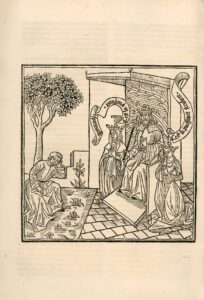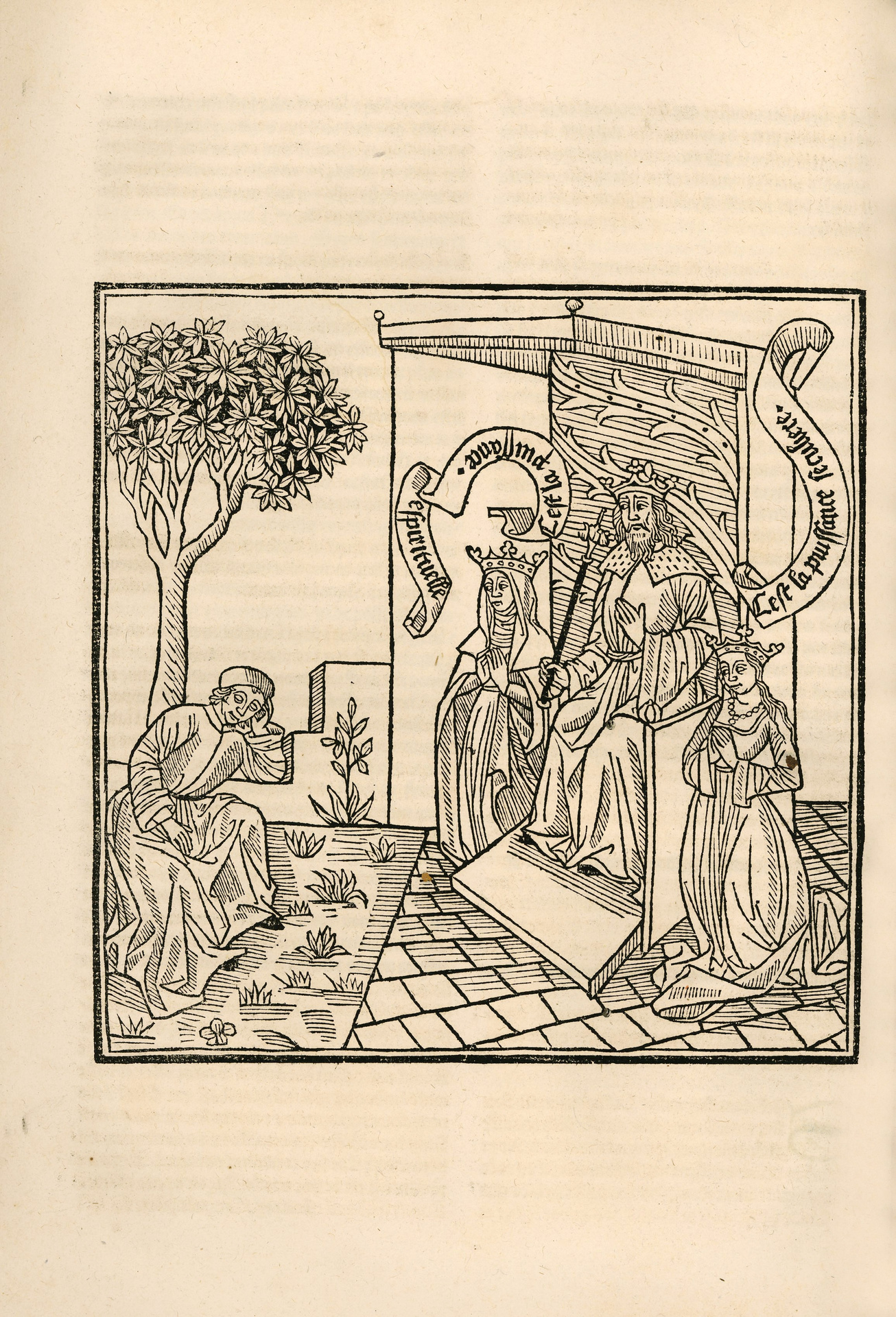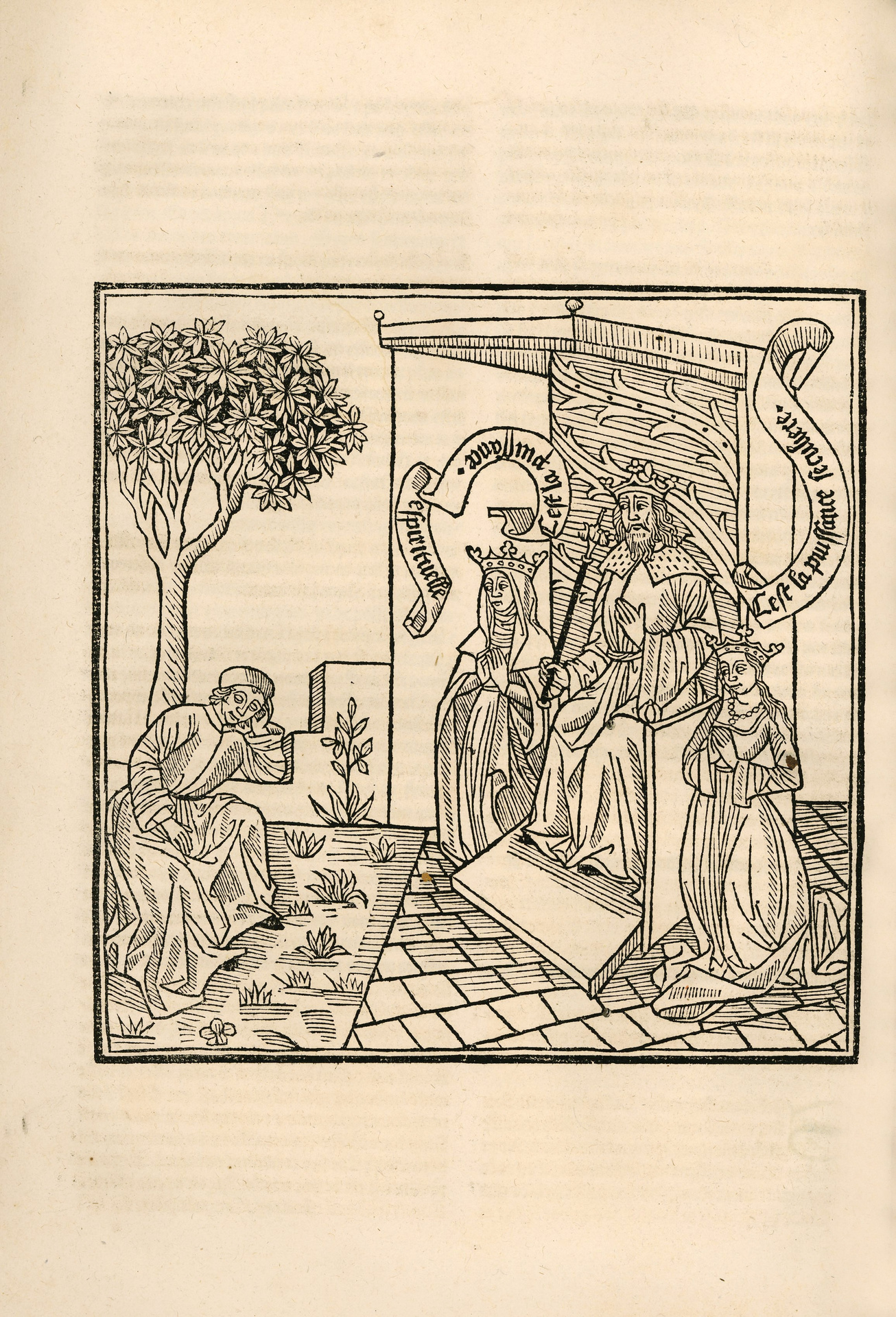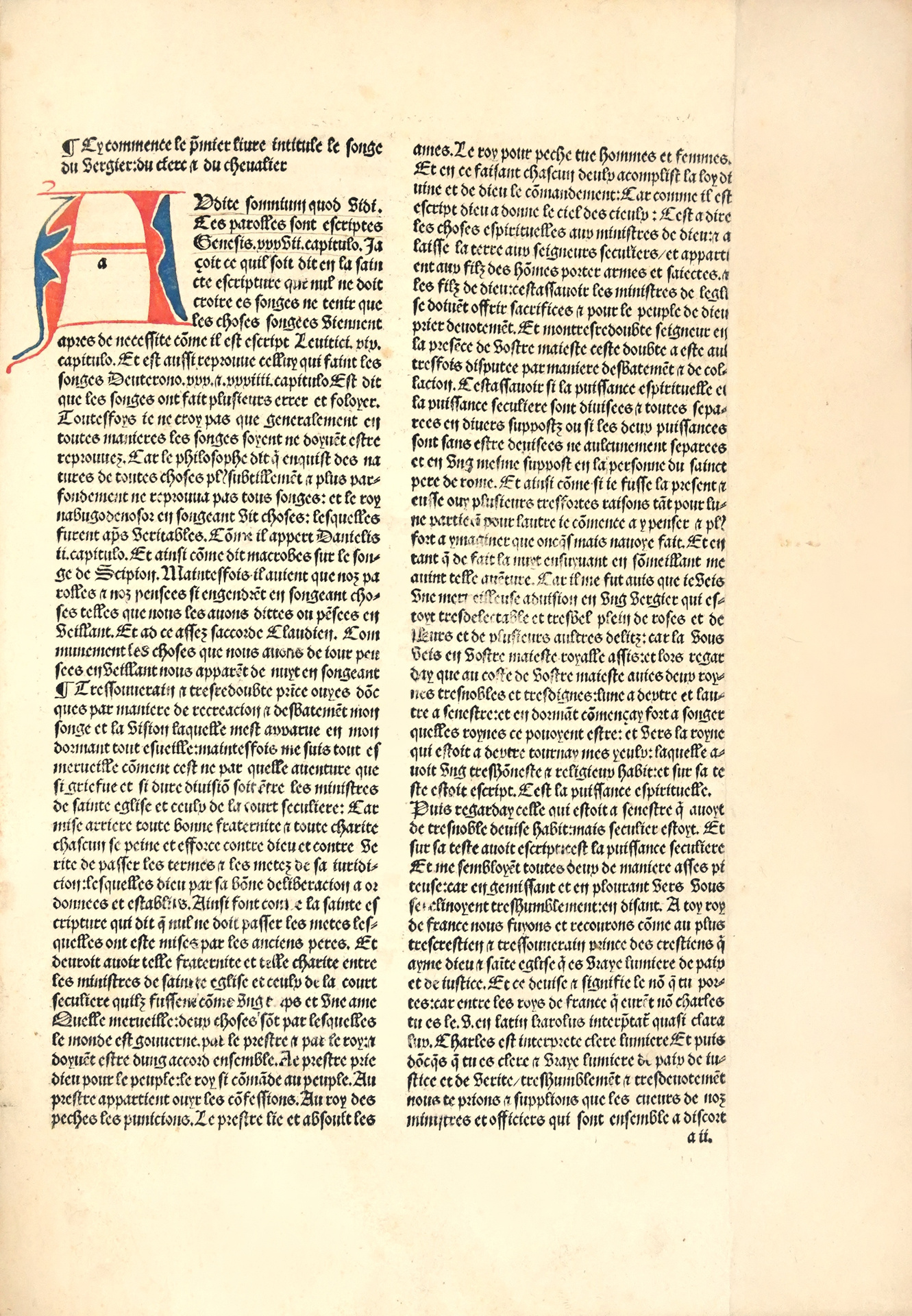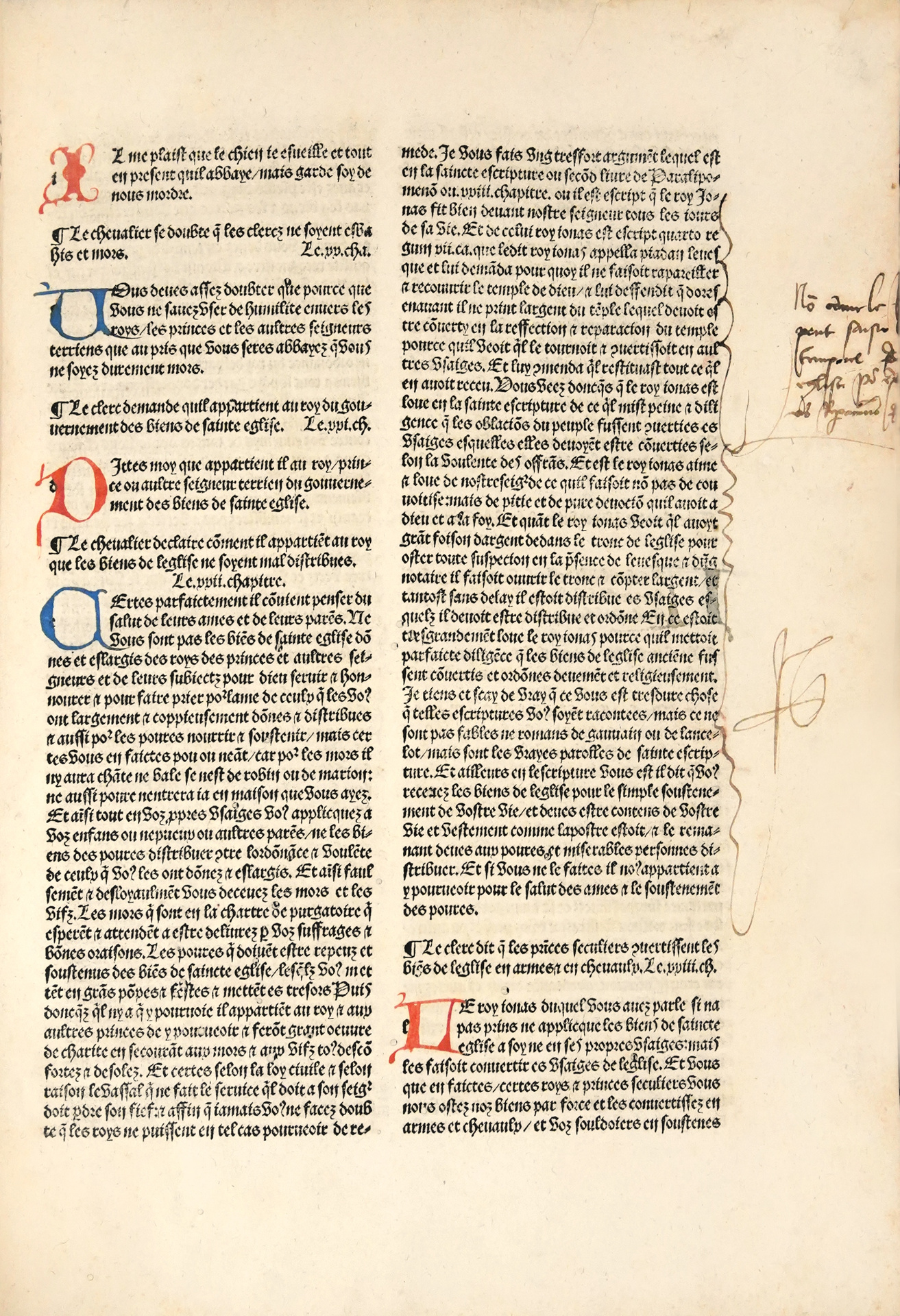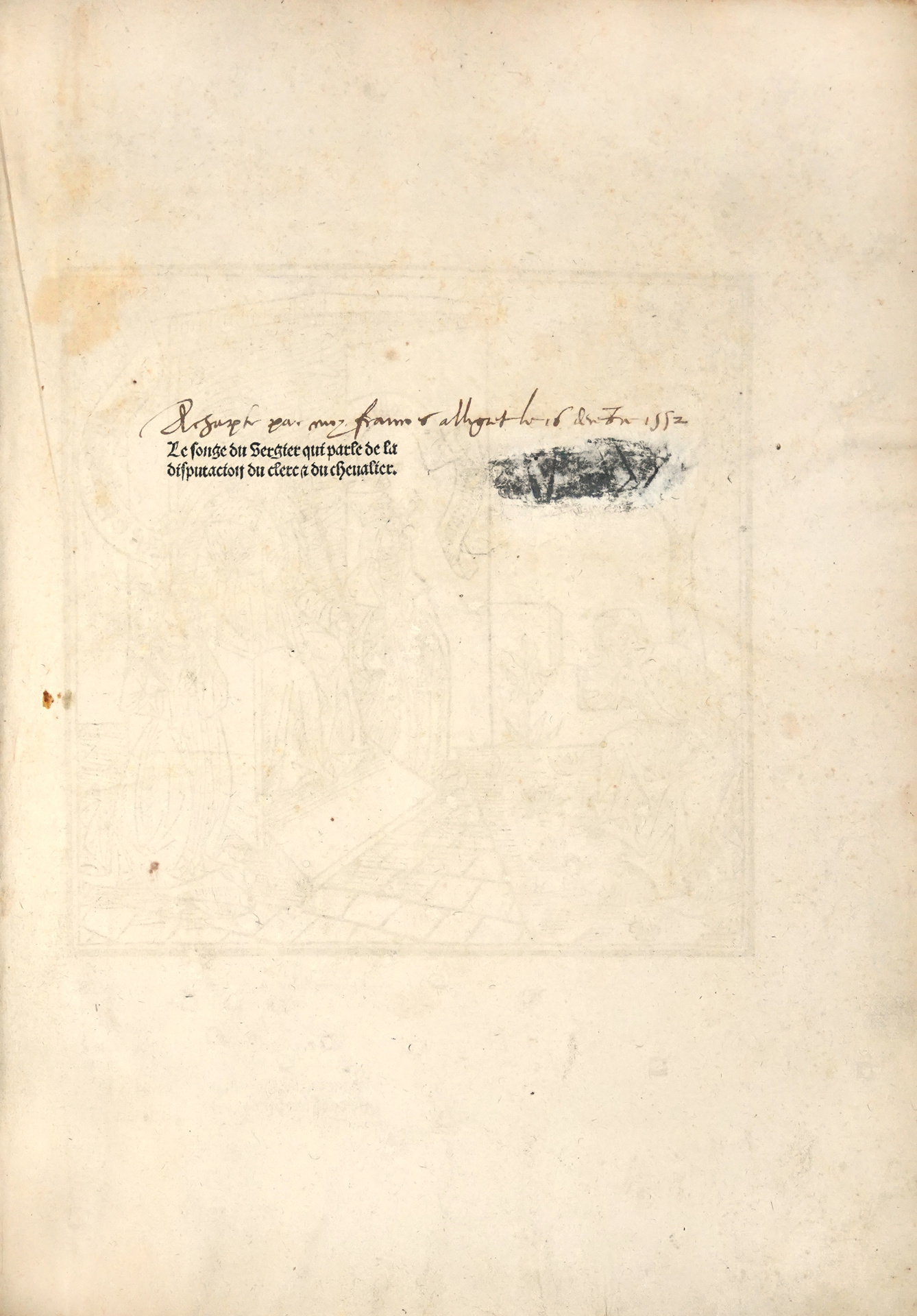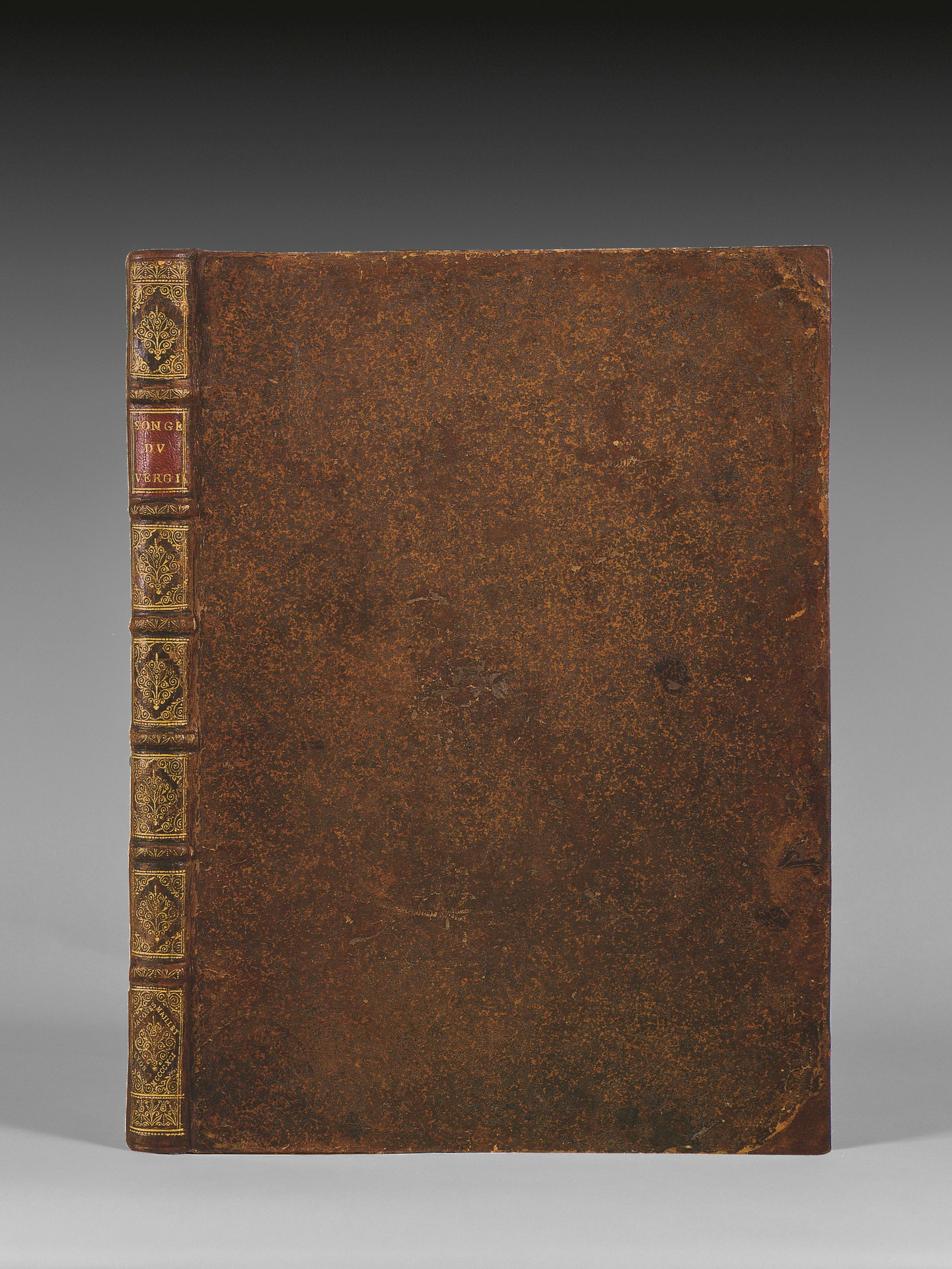Imprimé (à Lyon) par Jac. Maillet, lan mil cccc. quatre vings et unze, vingtieme iour de mars (1491).
“Gothic folio [329 x 232 mm] of (127) ll. with 2 columns of 51 lines, signature a-VIIII, including the frontispiece, on the verso of which is a large woodcut”. Large woodcut on the verso of title repêted on l. 82 verso. Complete.
Full brown mottled calf, spine ribbed and decorated, sprinkled edges, outer margins of lêves a2 and a3 reinforced with few letters remade on lêf a3. 18th century binding.
Rare first edition of one of the precious French illustrated incunables of political science and law.
Hain 16006 ; BMC VIII, 304 (IB 41952) ; Proctor 8622 ; Goff V 141 ; Claudin, IV, 105 ; Polain 3565; Baudrier XIII, S. 447 ; Murray 514 ; Brunet, V, 440.
The Songe du vergier is a remarkable work, which was written about the yêr 1374 or 1376, with the aim of defending the royal jurisdiction against the undertaking of the ecclesiastical jurisdiction.
“It was published in two languages, namely: in Latin and in French; but as the French text was printed twenty yêrs before the Latin, this made one suppose that the work had been written first in French, and then translated into Latin. However, the contrary opinion seems to have prevailed. It is known moreover that the Latin edition is more extensive than the French one, and that the two texts differ noticêbly between them for the number and the arrangement of the chapters.
The Songe du Vergier has been attributed to six or seven different authors, of whom three, especially, seem to have the most right to this attribution. They are 1) Raoul de Presle; 2) Philippe de Mézières, author of the Songe du vieil Pellerin, a work which remained a manuscript; 3) Charles de Louviers, in favor of whom one of his compatriots, the honorable M. Léopold Marcel, honorary notary in Louviers, has just published a Dissertation, first inserted in the Revue de législation et jurisprudence (1862-63), volume XXI” Brunet, V, 440.
This outstanding historical work was made at the request of the king of France Charles V around 1374 in order to defend the royal jurisdiction against the invasions of the ecclesiastical jurisdiction.
The two powers – Royauté et Saint Siège – are represented in the form of two allegorical figures of two queens for whom a cleric and a knight plêd before the king.
The tone of the work is very evocative of the personality of Charles V, who showed during his reign a keen sense of royal majesty and sought to restore the shaken prestige of the monarchy in public opinion.
Christine de Pisan, his bibliographer, shows him attentive to: “keep and maintain and give example to his successors to come that by solemn order must hold and lêd the very worthy degree of the high crown of France”.
“According to Charles V, to govern is to think, the sense of the common good balances in him the conscience of the divine right. His rêdings of Aristotle and the reflections of political theorists of his entourage such as Nicolas Oresme or Philippe de Mézières, contribute to define a conception of the royal office which subordinates the exercise of the authority to the interest of the public community.
But its government also draws from a grêt tradition: that of the Roman right, and especially of the practice of the “skilled legists to play with the profit of the royal sovereignty of the combined wêpons of the law and the custom”. G. Duby.
“Le Songe du Vergier” is fully in line with this historical and political context in which Charles V’s advisors, most of whom were jurists, fiercely defended the King’s justice against any infringement, seizing every opportunity to reduce the prerogatives of the grêt vassals in favor of the sovereign.
Wide-margined copy with the initials painted in red and blue, illustrated with a full-page woodcut representing the « Puissance Espirituelle » and the « Puissance séculière » on the verso of the title, repêted on n8 verso; on the title, sixteenth-century handwriting « Achapte par moy francois Alligiet le 26 Decembre 1552 ».
